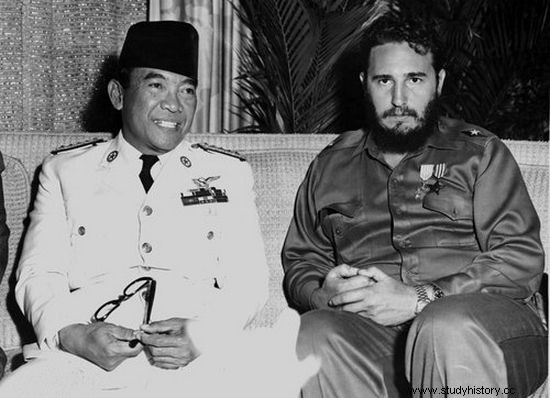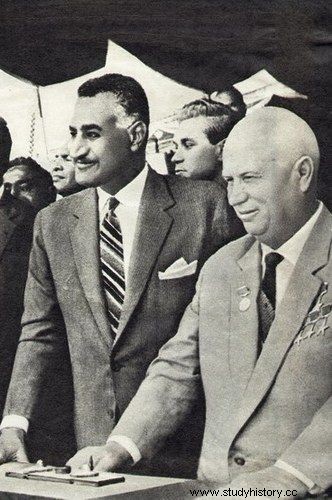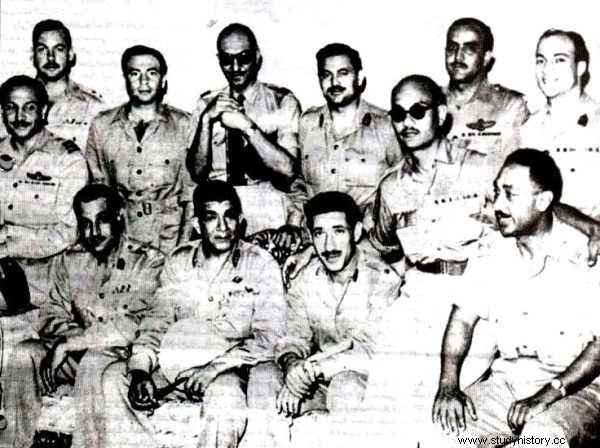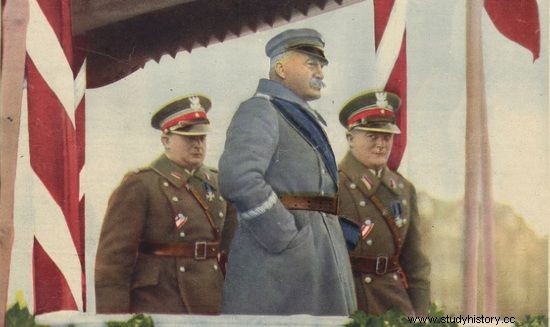Does every dictator have to be a bloody tyrant? These four leaders seized power in a coup d'état and fought the opposition by force, yet the crowds loved them. Until at least.
The word "dictator" is generally associated with bloody despots like Hitler, Stalin or Idi Amin Dada. In history, however, there were also those who were far from being great criminals. People admired them, the crowds, without compulsion, cheered in their honor. They ruled in a gentle, almost fatherly way. But can any dictatorship be a good solution?
Fourth place:Franco's forgotten predecessor
On September 13, 1923, a bloodless coup took place in Spain. General Miguel Primo de Rivera proclaimed himself dictator, and the king quickly approved his power, appointing him prime minister. The new leader gained the support of a large part of the Spaniards, who were tired of the chaos prevailing in the country at that time. He himself announced that his goal was only to bring order, and that when the task was completed, he would give up power.
Initially, de River did not lack success in stabilizing the country and modernizing it by expanding its infrastructure. The price was doubling the budget deficit, high inflation and a waste of money on state-funded construction.
Beloved dictator gradually went to the wrong side of the force. He introduced censorship and brutally suppressed strikes. He banned the largest trade union in Spain, and forced opposition intellectuals to leave the country. He fought the Catalan language and culture.
De Rivera, however, avoided really radical solutions. For example, it turned out to be unable to implement the land reform. As a consequence, he was gradually losing the support of other social groups. Both industrialists and socialists and anarchists were dissatisfied.
The king felt threatened, but the republicans were also in opposition. After all, even the military did not want to be the backbone of their general's rule any longer. Embittered, on January 28, 1930, he resigned and emigrated to France. He did not indicate a successor, and his order quickly disintegrated.
Third place:Jurny father of the nation
Ahmed Sukarno was one of the leaders of the Indonesian national movement. Among other things, thanks to him, independent Indonesia was established after World War II. However, it was strongly divided ethnically, religiously and socially. After the 1955 elections, representatives of 28 parties sat in parliament, of which only 4 had more than 8 seats. The largest of them won only 22% of places. One could forget about the stable majority.

Ahmed Sukarno in a joint photo with Fidel Castro (1960). The Indonesian president - like the Cuban dictator - over time increasingly leaned towards communism, which ultimately led to his collapse. However, it was the rule of his successor that resulted in hundreds of thousands, perhaps even millions, of casualties.
With the country on the brink of disintegration, Sukarno ended this democratic experiment. With the support of the army, he announced the introduction of a "guided democracy" that was better suited to Indonesian realities. Many believed in his message of national unity. Gradually, the chaos was brought under control and the territorial unity of the state was secured. Large infrastructure investments helped to reduce unemployment.
Unfortunately, problems typical of a centrally controlled economy, such as 100% inflation, quickly revealed themselves. Queues for basic products such as rice or kerosene grew, so the job of queuing up was emerging. With a lack of real accountability came the lawlessness of state officials and corruption. Just like in PRL in Poland.
When a famine broke out in one of the regions of the country, flour was distributed to the inhabitants. Some of it was taken over by corrupt officials, and the shortages were filled with chemicals. Over 1,000 people died from poisoning.
Sukarno, like Rivera, quickly forgot that he was supposed to be a good father of the nation, not a tyrant. He used censorship and repression against the opposition. A cult of personality was introduced that went so far that even the sexual prowess of a dictator was celebrated. The CIA tried to discredit him by making a pornographic film featuring his double, but the effect was the opposite of what was expected:the president's reputation only grew.
The conflict between the army and the communist party eventually led to the fall of Sukarno in 1966. His relatively benign rule, however, prepared the ground for a new, this time anti-communist dictatorship of General Suharto. It has resulted in hundreds of thousands, perhaps even millions, of casualties.
Second place:Naser and third way
In July 1952, a group of military personnel carried out a bloodless coup in Egypt. Two years later, one of them took over the full power:Colonel Gamal Abdel Naser. He exercised dictatorial, authoritarian rule until his death in 1970.

Gamal Abdel Naser (left) and the Soviet leader Nikita Khrushchev. Egypt 1964.
He spread strong pan-Arab and pan-Islamic slogans, skillfully maintaining an emotional bond with the Egyptian masses. Initial successes on the international stage helped in this, such as the nationalization of the Suez Canal and the assumption of a leading role in the Arab world and the Non-Aligned Movement.
In the economy, Nasser pursued a policy of nationalization, planned industrialization and large public investments, such as the construction of the Aswan dam. Domestic producers were protected by high customs duties. Free education was introduced, and investments were made in healthcare and the provision of clean water.
Though under state control, subsidized Egyptian culture flourished. All this was done with the simultaneous rejection of the principles of Marxism, such as the dictatorship of the proletariat or the abolition of private property.
The Egyptian dictator seemed to find a way to grow without subjugating either side of the Cold War. However, Nasserism had its dark side.
The growth of bureaucracy was enormous, as was the investment inefficiency. Losing wars with Israel turned out to be very costly. Censorship, monoparty rule and political repression with torture and death sentences were other elements of the reality on the Nile at that time.
Although opposition rose towards the end of the dictator's rule, he nevertheless held power until his death in 1970 without losing support. From year to year, however, he was a less and less benevolent tyrant.

Nasser in the Free Officers group, seated first on the left. Then Nagib, Amir and Sadat (source:public domain).
First place:Marshal and his sanacja
The hero of the fight for independence. Conqueror of the Bolsheviks from Warsaw, the first marshal of Poland, the Commander ... It is difficult to identify a more famous, respected and admired figure in Polish history. However, there are also those who still fiercely criticize Józef Piłsudski.
One of the main reasons for this is the May 1926 coup, with 379 fatalities and nearly 1,000 injured. The consequence was the Marshal's dictatorial rule, marked by the political process of Brest and the creation of a detention camp in Bereza Kartuska.
Typical of various dictatorships was also the emergence of a new ruling class, largely derived from the army and the former Legions. Although Piłsudski undoubtedly enjoyed great authority, his actions did not meet with the full support of the Polish society.
In the first parliamentary elections after the May coup, the Marshal's party, the Non-Party Block of Cooperation with the Government, won the elections, but gained only a quarter of the votes.

Marshal Józef Piłsudski receives the parade on Independence Day, November 11, 1930. Photo originally published on the cover of the interwar weekly Światowid.
Two years later, in November 1930, the BBWR recorded a much better result, but it did not exceed 50% of the vote. Meanwhile, the elections took place with numerous abuses by the authorities, and during them the most important opposition leaders sat in the Brest Fortress, imprisoned there without a court decision.
As Stanisław-Cat Mackiewicz wrote about Piłsudski: there were many people who hated him, he had whole strata of the population, whole districts of Poland against each other, a huge distrust of himself. And behold, it was not known on the day of the funeral . Mourning after the death of the Marshal was common and sincere, and with time his cult grew steadily. And he remains alive to this day, although disputes about him still fire the minds.
And the winner is… democracy?
Pitsudski's example is perhaps the best illustration of a rather sad conclusion:no dictatorship remains pure. This happens regardless of the dictator's best intentions, his gentleness, patriotism or social authority.
There is always censorship and its sister propaganda, more or less severe political repression and restrictions on civil liberties. There is also a privileged ruling caste and a centralized bureaucracy. The positive effects of the new government's work are often reversed quickly after the fall of the dictatorship. So maybe it's better to stay with imperfect democracy. At least until humanity can come up with something better…
